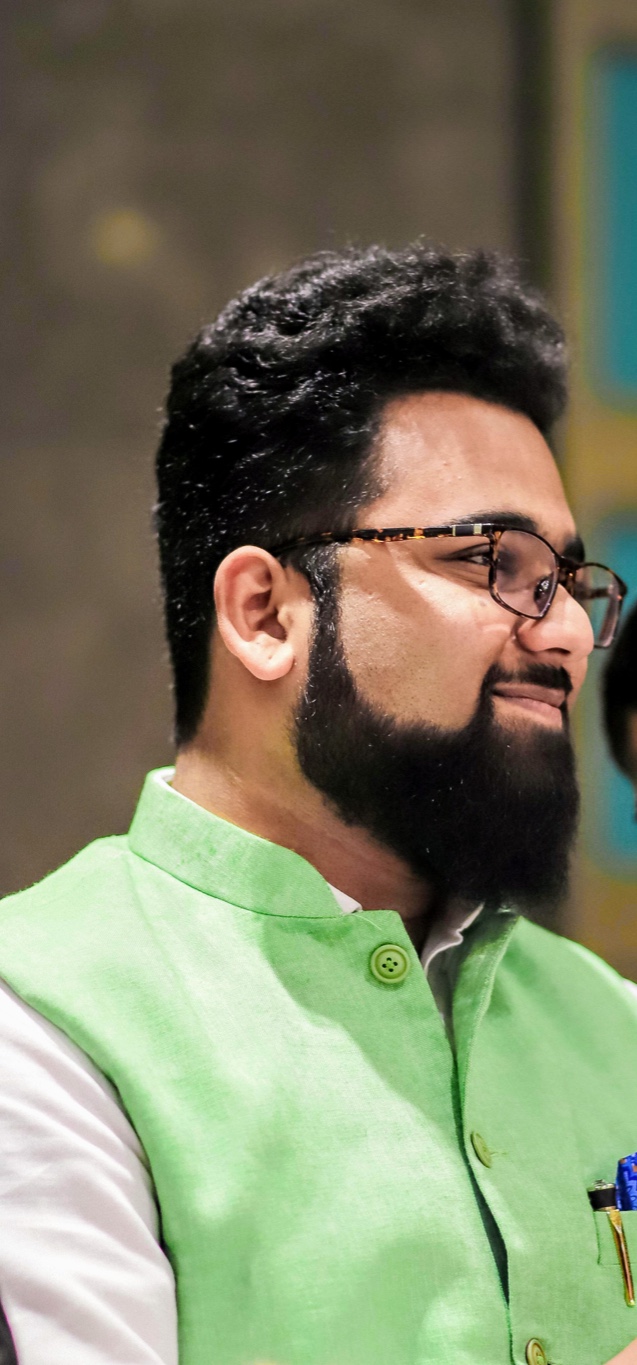‘Anything that makes a product or service cheaper, faster, more convenient, a better experience will be welcome in the post-Covid world… Laws must enable businesses, not stifle them.’ – Kunal R. Sarpal

Kunal R. Sarpal is an award-winning practising Company Secretary and Lawyer. One of the youngest in India to clear the CS course at the age of 20 alongside his commerce graduation, he secured an All India Rank and immediately started practising. He is the Founder & Managing Partner of White Collar Legal LLP, a boutique Corporate, Cyber, Intellectual Property Rights Law firm, started in 2013 and now has branches in Mumbai, Delhi, Surat and Pune. He also serves as a faculty, advisor and mentor at many renowned institutions such as IIM Ahmedabad, Tata Institute of Social Sciences, Flame University, Symbiosis International University. He’s a TEDx speaker and has also been appointed as an ambassador by the Ministry of Youth Affairs and Sports.
Q. From a legal perspective, could you talk about the challenges faced by start-up clients and how do you deal with them?
Start-ups are unstructured and are person/people driven. The knowledge of law, financial and legal frameworks and scalable entity modelling & compliance is missing. We fill these gaps by providing consulting, training, drafting and compliance services like a seasoned in house counsel dedicated in fin-legal plug in.
Q. You started your own firm in 2014 and so far, it has won many awards and recognition. What challenges did you face in setting up your independent firm?
Getting clients and establishing trust initially was tough. Getting ourselves structured and setting up SoPs and tech enablers was new and took a lot of time and learning. Since I did not have any prior experience before starting, it was learning on the client’s live assignments. The pressure to deliver well was immense. Building depth and getting high value work took a few years.
Q. What sets the practice at White Collar Legal apart from other law firms/law consultants?
We are RoI driven. For us, legal is something that enables businesses and does not stifle them.
We are also processes driven. This value and ethos is present in everything we do and in everyone who works with us. The way we merge legal-fin-business acumen is unique and our clients love us for it. It is sorely missing in many in our fraternity wherein professionals operate in silos and like horses with blinds.
Q. Often entrepreneurs are not really sure of the different types of IP rights available to them. What are the basic IP types that entrepreneurs can look into?
Primarily, there are 5 common to most businesses:
1. Their name/logo/brand/tagline/identity, which needs to be trademarked.
2. The unique content/processes/software/other tech they create they need to copyright.
3. The products/drug/utility/design they invent, which needs to be patented.
4. The beautiful aesthetic of their product which needs to be registered under design.
5. A combination of all above, as to how it interacts with each other to produce a brilliant result and also which helps them procure, store and analyze data.
Q. You are a TEDx speaker. What previous TED talk has been most meaningful to you?
‘How schools kill creativity’ by Sir Ken Robinson. For its simplicity, humor, depth and style of delivery.
Q. Covid-19 has had a colossal impact around the world. What do you think are the post Covid entrepreneurship opportunities and challenges?
Anything that makes a product or a service cheaper, faster, more convenient, better experience…is welcome. What is important is to focus on solving a specific problem and then being the best solution provider for it.
Business or entrepreneurship is pretty simple if you understand its fundamentals. Robust folks who understood this were least impacted by the pandemic or any other externality.
Q. Do you think Artificial Intelligence and machine learning in legal technology can be helpful in assisting lawyers in the corporate industry? If so then in what ways?
It will supplement us. Assist us. Make us better lawyers, not only in corporate but in litigation, in terms of:
a. Giving us better research tools for us to achieve depth and width at the same time, cheaply and fast.
b. Make a lot of admin work, repeat advisory, procedural work, non-application of mind work redundant and help us focus on our main competence of thinking of solving the problem at hand.
c. Clean the industry by making many old, outdated, ill-informed professionals redundant.
Q. What advice would you like to give to young lawyers and law students who may want to get into your line of work?
Build foundational theoretical depth and strength. Know everything that is out there and try filling the gaps.
Next, get hands on work experience through internships or low paid jobs. Next, build the skill of getting a job or better still, getting work, else all of the above is useless. (RoI mindset). Understand deeply that the client cares for a solution that’s best to solve his problem and he/she absolutely doesn’t care where it comes from or who gives it.
****
Sign up for our weekly newsletter to stay up to date on our product, events featured blog, special offer and all of the exciting things that take place here at Legitquest.




Add a Comment